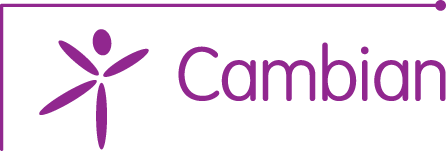The signs
• late speech development and continuing immaturities in articulation and syntax
• frequent reversal of letters and numerals
• distorted or blurred word shapes when reading
• difficulties in identifying sounds within words and blending sounds into words
• difficulty relating the sounds in language to the written symbols
• may mix up letters within words and words within sentences while reading
• difficulty in associating and remembering printed symbols and their spoken equivalent
• problems with spelling words correctly when writing
• under developed hand-eye preferences and directional sense
• jumbled letter sequences in spelling or in word-attack skills in reading
• sequences problems, e.g. days of the week
• poor concentration
• poor coordination
• poor handwriting
• slower speed of writing
• reluctance to write
• low level of motivation
• low self esteem and self image
• secondary emotional problems due to learning failure and poor school progress
What can parent or carers do?
• talk to the class teacher about your concerns and see whether they will access your child's difficulties
• read to your child to improve their listening skills and increase their interest
• encourage your child to join in with reading certain words
• discuss the storyline and content
• make reading a relaxed and fun activity
• help your child practice cursive (joined up) rather than printed writing
• use a sharp, standard HB pencil - with a grip where necessary
• develop a homework routine
• break homework down into manageable chunks
• encourage the use of drawing if that is their strength
• let them use the home computer/laptop/tablet to develop confidence and skills
• watch out for signs of stress, e.g. bed wetting
• buy slip on shoes until they can tie their own laces
• teach them to button up shirts/blouses from the bottom up
• for older children buy them audio versions of literature books they are studying or take them to the theatre
Some hints for the classroom
Ideally, provide special tuition, perhaps by withdrawing the child from the regular class for brief, intensive regular sessions. Where this is not possible, individual help should be given daily within the classroom setting.
Many books, videos and other learning materials have been produced to help the student who has dyslexia and teachers responsible for maximising their learning opportunities.
A few basic guidelines
• create a climate where reading is an enjoyable, relaxing and valued occupation
• reading, writing, spelling and maths skills should be thoroughly taught - leave nothing to chance
• read with them everyday as they follow the words with you
• skills should be taught in context rather than in isolation
• guided reading and writing are particularly beneficial
• employ systematic teaching of phonic knowledge and word-building, unless contraindicated by speech or auditory problems
• teach correct letter formation and cursive handwriting alongside the reading activities
• use finger-tracing and other multi-sensory approaches to aid assimilation and retention
• surround the child with stimulating reading material
• give abundant encouragement and praise as new skills are mastered
• be careful to select material to match the child's current ability and interest level
• revise and review previously taught skills or concepts at frequent intervals
• teach touch typing as an alternative to handwriting
If you would like some advice or more information on our services and what we can do for you, contact us here, or call 0161 507 3723 to discuss a referral in confidence.
For general enquiries, please contact us here.

